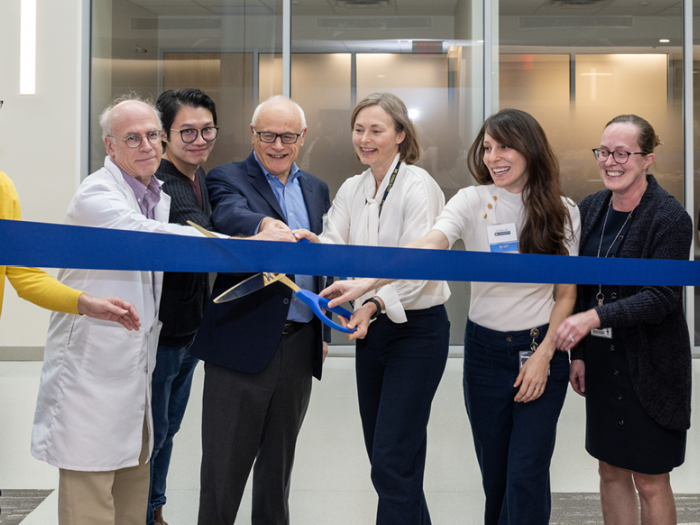-
Allergy & Clinical Immunology -
Cardiovascular Medicine -
Gastroenterology & Hepatology -
General Medicine -
Genetic Medicine -
Geriatric & Palliative Medicine -
Hematology & Oncology -
Hospital Medicine -
Infectious Diseases -
Metabolism, Endocrinology & Diabetes -
Nephrology -
Pulmonary & Critical Care Medicine -
Rheumatology

The U-M Medical School Department of Internal Medicine Division of Rheumatology is responsible for teaching learners at all levels, including medical students, house officers from the Department of Internal Medicine Core Residency Program, as well as undergraduate, graduate, and post-graduate trainees in our research groups. A major focus is the training of future rheumatologists, and we have a long and distinguished tradition of training Fellows who have gone on to successful careers in fields of their choice.
Discover education and training opportunities to advance your career.
The Division of Rheumatology fellowship and training programs include a Rheumatology Fellowship Training Program, which aims to equip every fellow with the skills needed to provide the highest possible quality of clinical care, and a T32 Scientist Training in Rheumatology Research Program, designed to provide trainees with the tools needed to become successful independent investigators.
The Rheumatology division has regularly scheduled comprehensive conferences including weekly grand rounds, weekly core curriculum conference, and monthly journal club, clinical case conference, and research seminars. The majority of these activities are available to earn CME credit. The University of Michigan Medical School is accredited by the Accreditation Council for Continuing Medical Education (ACCME) to provide continuing medical education for physicians.
Additional conferences/CME opportunities include:
Division Regularly Scheduled Conferences
The Division of Rheumatology offers regularly scheduled conferences to our faculty and fellows.
- Core Curriculum. Weekly. Basic science and clinical topics are presented by faculty.
- Program Director Practicum. Weekly. Discussion of current cases, practical clinical topics, board review.
- Grand Rounds. Weekly. Presentations by Fellows, faculty, visitors.
- Case Discussion. Monthly. Faculty and Fellows discuss challenging cases.
- Journal Club. Monthly. Fellows critically evaluate recent publications.
- Research Seminars. Monthly. Attended by faculty, Fellows, graduate students, post-doc’s.
- Pathology-Rheumatology Conferences. Sixth weekly. Biopsy material is presented by Pathology faculty.
- Radiology-Rheumatology Conferences. Sixth weekly. Fellows practice interpretation with Radiology faculty.
- Ultrasound. Sixth weekly. A USSONAR-trained faculty member teaches regional anatomy and ultrasound.
Our fellowship and training programs aim to equip every learner with the skills and tools needed to become expert clinicians and successful researchers in the field of rheumatology.
From outstanding MD and PhD programs to comprehensive residency and fellowship programs, and many training options in between, Michigan Medicine offers limitless opportunities for our trainees.


